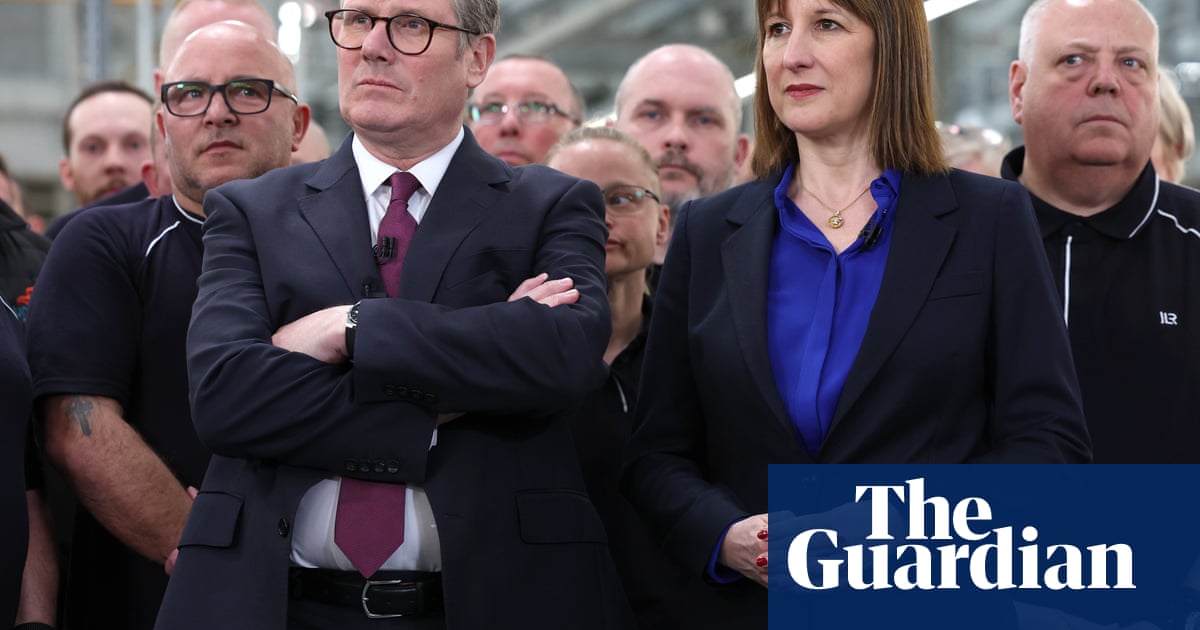A fortnight ago in a corridor near the House of Commons chamber, a close confidant of the prime minister smiled and shook his head when asked if the government could really lose the welfare vote.
MPs would come to their senses, he predicted, because they would eventually understand that to fundamentally undermine the government’s authority would have consequences which no one could control.
Any pretence of stability and discipline would be over. Keir Starmer’s own position would be questioned. And – he said – he did not believe that was what MPs really wanted to unleash.
But intended or not, that is what has happened. There was a long-running joke during last year’s election campaign that Starmer had a genie that was responsible for his run of good fortune. That genie is out of the bottle.
And so, to Tory jeers, the chancellor,Rachel Reeves, was forced to sit on the frontbench during PMQs in obvious distress, staring into a £5bn black hole-shaped abyss.
Many would say it is a mess of their own making – given the strength of feeling about the harm that the welfare bill would cause, the months of warning from disability charities and campaigners, and the mounting private anger of MPs which was communicated forcefully to the whips and then to the closed ears of No 10. There were endless chances to pause and do things differently.
NoLabourMP could seriously believe that there was a “moral mission” to reform welfare – even if they agreed the system was dysfunctional – because of the timing of the announced cuts, which came because of the chancellor’s severely limited headroom in the spring statement.
But the consequences are far-reaching, and for some they are unintended. There are, of course, some MPs who mounted the rebellion against the government who did intend to depose Starmer or Reeves or Morgan McSweeney, who want “regime change” – without really knowing or understanding what that means – or who simply despise the government’s overall direction.
That was not the majority. For most it was a heartfelt desire to protect the most vulnerable, a conviction that this particular policy was wrong and that a new path could be found, without undermining the government on other issues.
Allies of Reeves call that painfully naive. Inside both No 10 and the Treasury, there is seething anger at the backbenchers who have caused this very real collapse in the government’s authority.
It was deliberate on Wednesday morning that the Cabinet Office minister, Pat McFadden, was sent out to say explicitly on the airwaves that the forthcoming budget would have to pay for the painful U-turn.
“We could have bluffed through interviews this morning and said vaguely ‘decisions will be taken in the budget’, but we want to be honest, this means hard choices,” said one ally of Reeves.
“If Labour MPs want to be a part of the decision-making process in this way, which they obviously absolutely have the right to do, they therefore need to be brought into the hard choices we’ve got to take now.”
But it will not just be tax rises, another senior official promised darkly. The welfare U-turn will also mean there will be far less money to spend on other progressive priorities. Top of the list is ending the two-child benefit limit, a move which is now said to be at risk.
Reasserting Reeves’s authority to the markets is also key. Her emotional state at PMQshad an immediate effect on gilt yields, far more, bizarrely, than the actual £5bn U-turn, a sign that mere vibes of control and predictability is as important for a stable economy as material changes in policy.
From a Treasury perspective, the bumpy day on the markets – as long as it does not turn into something bigger – is almost a helpful reminder that their warnings about the potential for a Liz Truss-style meltdown are not exaggerated.
The message now to both the markets and the parliamentary Labour party will be that order can be reasserted and tough times are coming. But the quiet part is that they really no longer have control over either. Labour MPs now know their own power.
“If the lesson they have learned from this is that now we need a punishment budget, Keir won’t make it to next May,” one MP said. “There is a window now to re-establish trust and tell a new story, he needs to take it.”
